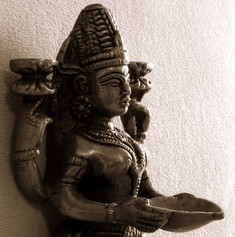 Generosity/rebecca
Generosity/rebecca I was one of six women meditating at the Hartford Street Zen Center in the Castro. After tea and cookies, we talked about getting home. I drive a Scion IQ, just large enough for me and one passenger, so I couldn’t offer rides to anyone other than the teacher who lives a block from me. But I did hand bus fare to one of the women who had said she had no money to take Muni to her place in the Tenderloin. Rather than generously accepting two dollars from me, she dropped the money on the table next to the cookies, saying money wasn’t her thing.
She said she would just hop on the back of the bus through the back door and skip the fare. Righteous indignation instantly erased any loving kindness residue. Did my sangha sister not sense a disconnect between Buddhist meditation and a fare-free bus ride home? Did she prefer Muni generosity to mine? I was familiar enough with Buddhist precepts to know it isn’t okay to take what isn’t freely given. Sounds like that would include riding Muni without paying.
I was doubly annoyed at having my two-dollar gift rejected because Rev. Lien’s dharma talk had been about dana, the Pali word for generosity. I thought we had agreed that women, at least the six of us at the dharma talk,were more skillful at giving than we were at receiving. I saw this as a perfect opportunity for one woman to accept from another woman to make her life easier. It would cost both parties a mere two dollars. But seeing her slap the money on the table next to the cookies rather than pocket it, I sensed that gifting this woman with bus fare didn’t qualify as generosity. She had said she had issues with money. And real generosity means giving people things that are good for them, things they want. Ergo, the two-dollars to ride the bus was not generosity because it had not contributed to the wellbeing of a woman with money issues who would rather hop the back of a bus than carry a Clipper card or ante up two dollars, even if they weren’t her own.
Seeing that two dollars hadn’t enhanced my sangha sister’s wellbeing, I questioned my intentions. Had I been showing off? Was it my habit to throw money at problems? What information was I missing? Was I in the presence of poverty? Mental instability? Libertarian politics at work?
Rev. Lien’s dharma talk had stressed other generosity besides financial, such as gifts of time, attention, aid, encouragement, and emotional availability. Although feeling entirely in the right that people should pay their way on public transportation, I still wanted to commit an act of generosity that could not be refused, so I chose to offer a second gift, the gift of silence, rather than giving her a piece of my mind. My silence was a gift to myself as well because I was putting into practice a prayer from poet Theodore Roethke: “May my silences become more accurate.” It is possible that an accurate silence may be worth more than bus fare.
She said she would just hop on the back of the bus through the back door and skip the fare. Righteous indignation instantly erased any loving kindness residue. Did my sangha sister not sense a disconnect between Buddhist meditation and a fare-free bus ride home? Did she prefer Muni generosity to mine? I was familiar enough with Buddhist precepts to know it isn’t okay to take what isn’t freely given. Sounds like that would include riding Muni without paying.
I was doubly annoyed at having my two-dollar gift rejected because Rev. Lien’s dharma talk had been about dana, the Pali word for generosity. I thought we had agreed that women, at least the six of us at the dharma talk,were more skillful at giving than we were at receiving. I saw this as a perfect opportunity for one woman to accept from another woman to make her life easier. It would cost both parties a mere two dollars. But seeing her slap the money on the table next to the cookies rather than pocket it, I sensed that gifting this woman with bus fare didn’t qualify as generosity. She had said she had issues with money. And real generosity means giving people things that are good for them, things they want. Ergo, the two-dollars to ride the bus was not generosity because it had not contributed to the wellbeing of a woman with money issues who would rather hop the back of a bus than carry a Clipper card or ante up two dollars, even if they weren’t her own.
Seeing that two dollars hadn’t enhanced my sangha sister’s wellbeing, I questioned my intentions. Had I been showing off? Was it my habit to throw money at problems? What information was I missing? Was I in the presence of poverty? Mental instability? Libertarian politics at work?
Rev. Lien’s dharma talk had stressed other generosity besides financial, such as gifts of time, attention, aid, encouragement, and emotional availability. Although feeling entirely in the right that people should pay their way on public transportation, I still wanted to commit an act of generosity that could not be refused, so I chose to offer a second gift, the gift of silence, rather than giving her a piece of my mind. My silence was a gift to myself as well because I was putting into practice a prayer from poet Theodore Roethke: “May my silences become more accurate.” It is possible that an accurate silence may be worth more than bus fare.
 RSS Feed
RSS Feed